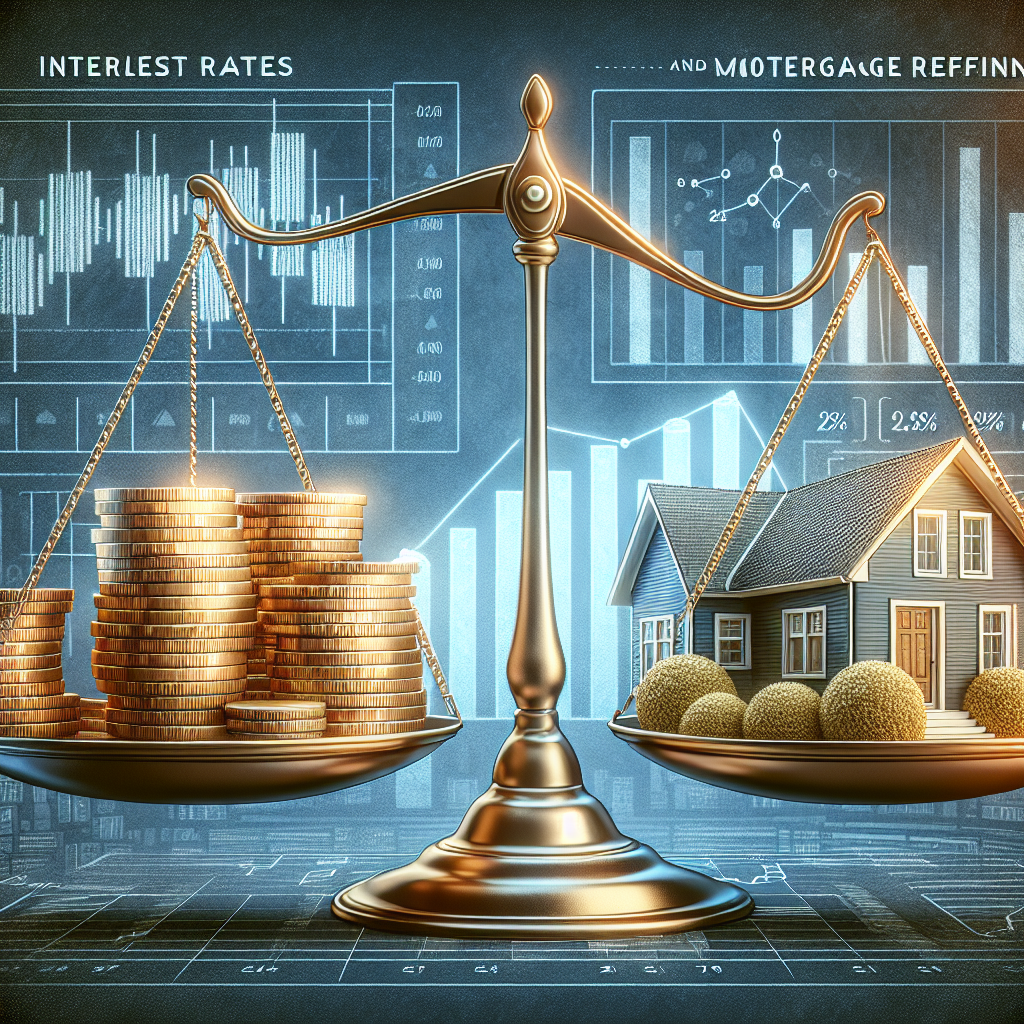Understanding the relationship between interest rates and mortgage refinancing is essential for homeowners looking to save money or access their home’s equity. This comprehensive guide will delve into how interest rates impact refinancing decisions and provide tips for navigating the process.
What Is Mortgage Refinancing?
Mortgage refinancing is the process of replacing your existing loan with a new one, typically to secure a lower interest rate, change the loan term, or switch from an adjustable-rate mortgage (ARM) to a fixed-rate mortgage. Homeowners often consider refinancing to reduce monthly payments, lower overall interest costs, or access cash for home improvements or debt consolidation.
How Interest Rates Affect Your Mortgage
Interest Rates Explained
Interest rates are the cost of borrowing money, expressed as a percentage of the loan amount. They fluctuate based on economic conditions, including inflation, unemployment rates, and the overall health of the financial markets. When interest rates are low, borrowing becomes more affordable, making refinancing an attractive option for many homeowners.
The Impact of Rising Interest Rates
When interest rates rise, mortgage refinancing may become less beneficial. Higher rates can increase monthly payments and the overall cost of borrowing, which might discourage homeowners from refinancing. It’s essential to keep an eye on interest rate trends and determine if now is the right time to refinance based on your financial goals.
When to Consider Refinancing Your Mortgage
Lowering Monthly Payments
Homeowners often choose to refinance to take advantage of lower interest rates, which can significantly reduce monthly mortgage payments. This approach can free up funds for other financial goals, such as saving for retirement or paying off high-interest debt.
Switching Loan Types
If you currently have an ARM, refinancing to a fixed-rate mortgage can provide stability in your monthly payments. Conversely, if interest rates are rising and you have a fixed-rate mortgage, switching to an ARM could be advantageous if you expect rates to go down or remain stable in the long term.
Cash-Out Refinancing
Cash-out refinancing allows homeowners to access the equity built up in their homes. If your home has appreciated significantly, you can refinance for a larger amount than you owe and take the difference in cash. This money can be used for home renovations, education expenses, or debt consolidation.
The Mortgage Refinancing Process
Assessing Your Financial Situation
Before refinancing, evaluate your current financial situation, including your credit score, income, and existing debt. This assessment will help determine if you qualify for a better interest rate and if refinancing aligns with your financial goals.
Shopping for Lenders
Don’t settle for the first offer you receive. Shop around and compare lenders to find the best mortgage rates and terms. Use online comparison tools, read reviews, and consider working with a mortgage broker to find competitive rates that suit your needs.
Understanding Closing Costs
Refinancing typically involves closing costs, which can range from 2% to 5% of the loan amount. Be sure to factor in these costs when calculating potential savings from refinancing. In some cases, lenders may offer "no closing cost" options, but these often come with higher interest rates.
Pros and Cons of Mortgage Refinancing
Pros
- Lower Monthly Payments: Benefit from reduced payments and increased cash flow.
- Access to Equity: Utilize home equity for major expenses or debt consolidation.
- Loan Term Flexibility: Change the length of your mortgage to suit your financial situation.
Cons
- Closing Costs: The upfront costs associated with refinancing can be significant.
- Potential for Debt Increase: Cash-out refinancing can lead to higher mortgage debt.
- Credit Impact: The refinancing process may temporarily affect your credit score.
Conclusion: Making the Right Choice
Navigating the world of interest rates and mortgage refinancing can be complex, but staying informed about market trends and your financial situation is crucial. Weigh the pros and cons carefully, and consult with a mortgage professional to determine the best course of action for your individual circumstances. Keeping an eye on interest rates will help you make informed decisions that align with your long-term financial goals. Whether you’re looking to save money or access your home’s equity, understanding these key concepts will empower you to make the right choices as a homeowner.

